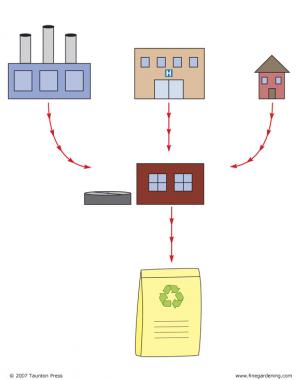
For the past decade, the Environmental Protection Agency (EPA) and the waste management industry have been promoting the use of processed sewage sludge for farm and garden. Likewise, in communities across the country, waste treatment plants are composting or otherwise treating their sewage sludge and offering it as a soil amendment.
The idea of returning the nutrients in human waste to the soil is not new. For thousands of years, Chinese farmers collected “night soil” to fertilize their fields. Unfortunately, these days human isn’t the only thing that gets flushed down the drain. Schools, hospitals, dry cleaners, and industries of all sorts send their wastewater to the same sewage treatment plant. Pesticides, PCBs, dioxins, radioactive wastes, asbestos, heavy metals, and petroleum compounds are among the pollutants found in sludge once the municipal waste has been treated. Of these pollutants, the EPA has set standards regulating only a handful of contaminants: the heavy metals arsenic, cadmium, chromium, copper, lead, mercury, zinc, nickel, molybdenum, and selenium.
These standards, however, do not appear adequate to protect human health or the health of agricultural lands, according to Cornell’s Waste Management Institute. Some of these heavy metals are toxic to plants at high levels, and certain metals—notably lead, cadmium and mercury—are toxic to animals. Heavy metals can kill soil organisms vital to the decomposition of leaf litter and can harm beneficial nitrogen-fixing bacteria. Unlike the organic components of sludge, heavy metals do not decompose. They remain in the soil, accumulating to levels that eventually make the soil unfit for farming or gardening.
Be Wary of Compost Packaging
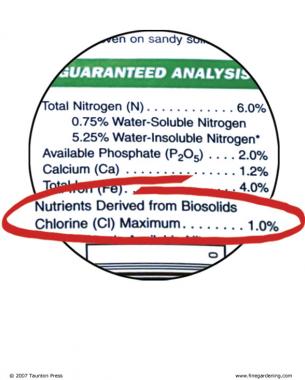
Just as you shouldn’t judge a book by its cover, you shouldn’t buy a bag of compost based on the packaging. Charlotte Hartman, coordinator of the National Sludge Alliance (a grassroots network of farmers, community groups, and individuals concerned about the risks of sludge), notes that a number of commercial bagged fertilizer blends and compost mixes use sludge.
• The wording on the package can be confusing. Watch out for the word “biosolid,” a euphemism coined in the 1970s that refers to the solid matter recovered from sewage treatment. And don’t be fooled by products claiming to be a “natural organic” or “the original organic” compost, as these terms don’t prevent them from containing sewage sludge.
• In addition, companies often fail to clearly identify the product as a sludge product. Many of the blends bear earth-friendly names: Earthlife, EKO Compost, SoilRich, and ERTH Food.
• While a sludge-based fertilizer cannot be labeled “organic”—sludge is excluded from the National Organic Standards—it can still wear the “natural organic nitrogen” label and drape itself in earth-friendly packaging. Add to that a recycling symbol and a large gold seal from the U.S. Composting Council and you can confuse even the professionals.
• Equally unimpressive are claims that a product meets the lenient EPA requirements to qualify as a class A “Exceptional Quality” compost.
• To help organic gardeners identify composts of high quality that have passed “organic” scrutiny, Rodale’s Organic Gardening has joined with Woods End Laboratories to test and label products with the “Rodale’s Organic Gardening Compost Quality Seal.” Any product wearing this label must undergo tests for nutrients, heavy metals, pesticide residues, and more.
Fine Gardening Recommended Products
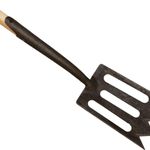
DeWit Spork with Solid Socket
Fine Gardening receives a commission for items purchased through links on this site, including Amazon Associates and other affiliate advertising programs.
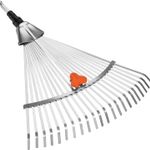
Gardena 3103 Combisystem 12-Inch To 20-Inch Adjustable Metal Fan Rake Head
Fine Gardening receives a commission for items purchased through links on this site, including Amazon Associates and other affiliate advertising programs.
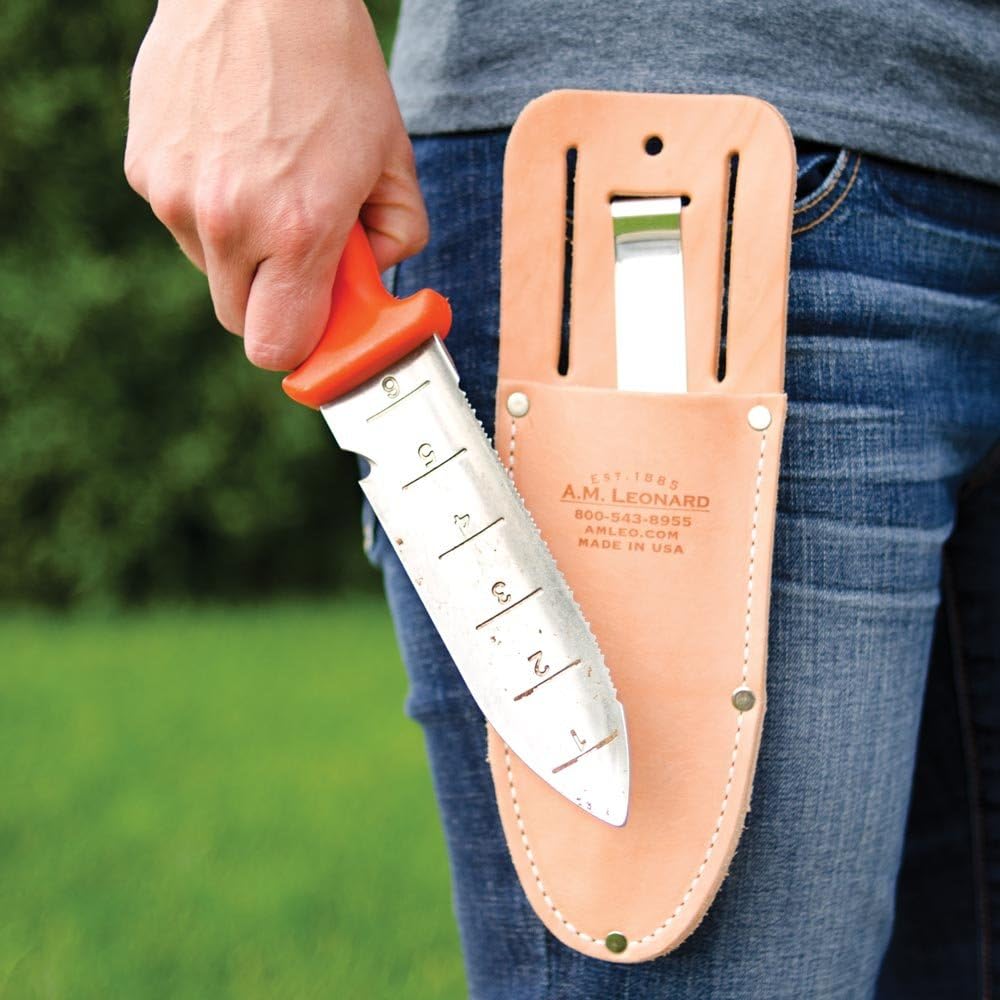
A.M. Leonard Deluxe Soil Knife & Leather Sheath Combo
Fine Gardening receives a commission for items purchased through links on this site, including Amazon Associates and other affiliate advertising programs.

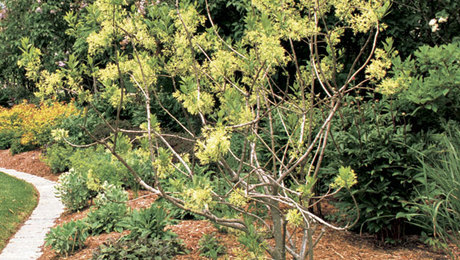





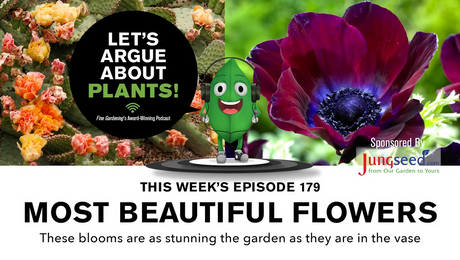










Comments
The article does well to point out some concerns about sludge based fertilizers. However, it does not counterpoint with the fact that not all biosolids are treated via the same processes. In the Pacific NW there are some very high quality treatment programs that precipitate out all heavy metals, then anaerobically digest the sludge, much like an earthworm's gut would. The final product is then composted at high temp to assure no pathogens remain. These products like Tagro from the city of Tacoma have been tested for residuals including pharmaceuticals and personal care product. The test results so residues in the low parts per billion. Often local composted yard waste test higher for residuals and heavy metals. Tagro is a great soil amendment that has won over a hundred blue ribbons for their test garden at the Puyallup Fair. For more info go to:
http://www.kingcounty.gov/services/environment/wastewater/resource-recovery/Loop-Biosolids/documents-resources/FAQ.aspx
http://www.cityoftacoma.org/cms/One.aspx?portalId=169&pageId=11453
Log in or create an account to post a comment.
Sign up Log in